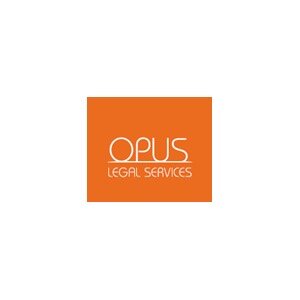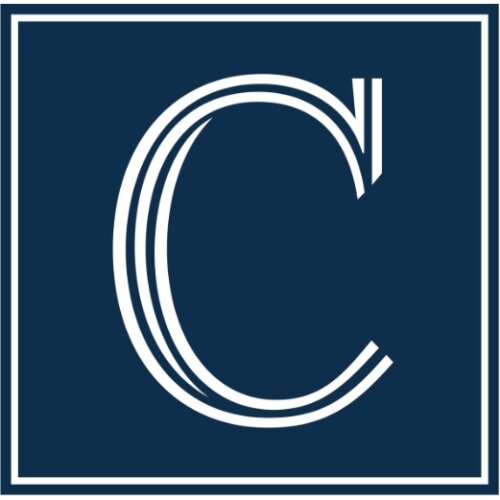Best Child Abuse Lawyers in Reykjavik
Share your needs with us, get contacted by law firms.
Free. Takes 2 min.
Free Guide to Hiring a Family Lawyer
List of the best lawyers in Reykjavik, Iceland
About Child Abuse Law in Reykjavik, Iceland
Child abuse is a grave concern in Reykjavik, Iceland, just as it is in many parts of the world. Icelandic law is committed to protecting children and ensuring their safety and well-being. Child abuse encompasses physical, emotional, and sexual abuse, as well as neglect. Legal measures are in place to address and prevent these issues, and various agencies work together to support victims and their families. The legal framework aims to provide comprehensive care and protection to ensure that children's rights are upheld.
Why You May Need a Lawyer
Seeking legal assistance in cases of child abuse is crucial for several reasons:
- Legal Representation: A lawyer can provide representation in court to ensure that the child's best interests are considered.
- Navigating the System: The legal system can be complex. A lawyer can help understand the procedures and requirements.
- Filing Complaints: Legal assistance can be critical when filing complaints and reporting abuse to authorities.
- Protective Orders: A lawyer can assist in obtaining protective orders to ensure the child's immediate safety.
- Support Services: Lawyers can connect families with essential support services, including counseling and medical help.
- Legal Advice: Expert legal advice is necessary to understand your rights and the legal implications of the abuse.
Local Laws Overview
Icelandic law provides a robust framework for addressing child abuse. Some key aspects include:
- Child Protection Act: This act mandates that authorities intervene in cases where children are at risk of harm.
- Punishments: Perpetrators of child abuse face severe penalties, including imprisonment.
- Reporting Obligations: There are mandatory reporting requirements for professionals working with children, such as teachers and doctors.
- Protective Measures: The law provides for immediate protective measures, including removing the child from harmful environments.
- Confidentiality: Legal provisions ensure that the identity of the child and the details of the case remain confidential.
Frequently Asked Questions
What constitutes child abuse in Reykjavik, Iceland?
Child abuse includes physical, emotional, and sexual abuse, as well as neglect. Any action or inaction that harms or threatens a child's well-being can be considered abuse.
How is child abuse reported in Reykjavik?
Abuse can be reported to local child protection services, the police, or other designated authorities. Professionals working with children are required by law to report any suspicions of abuse.
What are the penalties for child abuse in Iceland?
Penalties vary depending on the severity of the abuse but can include significant fines and imprisonment. Icelandic law treats child abuse as a serious crime.
Can children report abuse themselves?
Yes, children can and should report abuse. Authorities are trained to handle reports from children and take their claims seriously.
What support is available for victims of child abuse?
Support services include counseling, medical care, and legal assistance. Various non-governmental organizations also provide support to victims and their families.
Are there protective measures available for children at risk?
Yes, authorities can implement protective measures, such as removing the child from the harmful environment and placing them in a safe setting, including foster care if necessary.
How does the Child Protection Act help prevent child abuse?
The Child Protection Act provides a legal basis for intervention by authorities to protect children at risk, ensuring that their rights and safety are upheld.
What should I do if I suspect a child is being abused?
Report your suspicions to child protection services or the police immediately. Your involvement could be crucial in protecting the child.
How are child abuse cases prosecuted in Iceland?
Child abuse cases are prosecuted by the state. A thorough investigation is conducted, and if there is sufficient evidence, the case goes to court where penalties are determined based on the seriousness of the abuse.
Are there any prevention programs in place?
Yes, there are several prevention programs aimed at educating the public, training professionals, and providing resources to prevent child abuse.
Additional Resources
Here are some valuable resources for those seeking assistance:
- Child Protection Services: Provides intervention and support for children at risk.
- Ministry of Social Affairs: Oversees child welfare policies and implementation.
- Barnaheill - Save the Children Iceland: Offers various support services for children and their families.
- 123 Childline: A helpline for children and young people to discuss their concerns confidentially.
Next Steps
If you need legal assistance in a child abuse case, consider the following steps:
- Contact a Lawyer: Reach out to a lawyer specializing in child abuse cases for expert legal advice.
- Gather Evidence: Collect any necessary documents and evidence related to the case.
- Report the Abuse: File a report with the relevant authorities to ensure immediate protection for the child.
- Seek Support: Utilize available support services for counseling and assistance.
- Attend Consultations: Attend all legal consultations and court proceedings to ensure the case is handled effectively.
Lawzana helps you find the best lawyers and law firms in Reykjavik through a curated and pre-screened list of qualified legal professionals. Our platform offers rankings and detailed profiles of attorneys and law firms, allowing you to compare based on practice areas, including Child Abuse, experience, and client feedback.
Each profile includes a description of the firm's areas of practice, client reviews, team members and partners, year of establishment, spoken languages, office locations, contact information, social media presence, and any published articles or resources. Most firms on our platform speak English and are experienced in both local and international legal matters.
Get a quote from top-rated law firms in Reykjavik, Iceland — quickly, securely, and without unnecessary hassle.
Disclaimer:
The information provided on this page is for general informational purposes only and does not constitute legal advice. While we strive to ensure the accuracy and relevance of the content, legal information may change over time, and interpretations of the law can vary. You should always consult with a qualified legal professional for advice specific to your situation.
We disclaim all liability for actions taken or not taken based on the content of this page. If you believe any information is incorrect or outdated, please contact us, and we will review and update it where appropriate.











